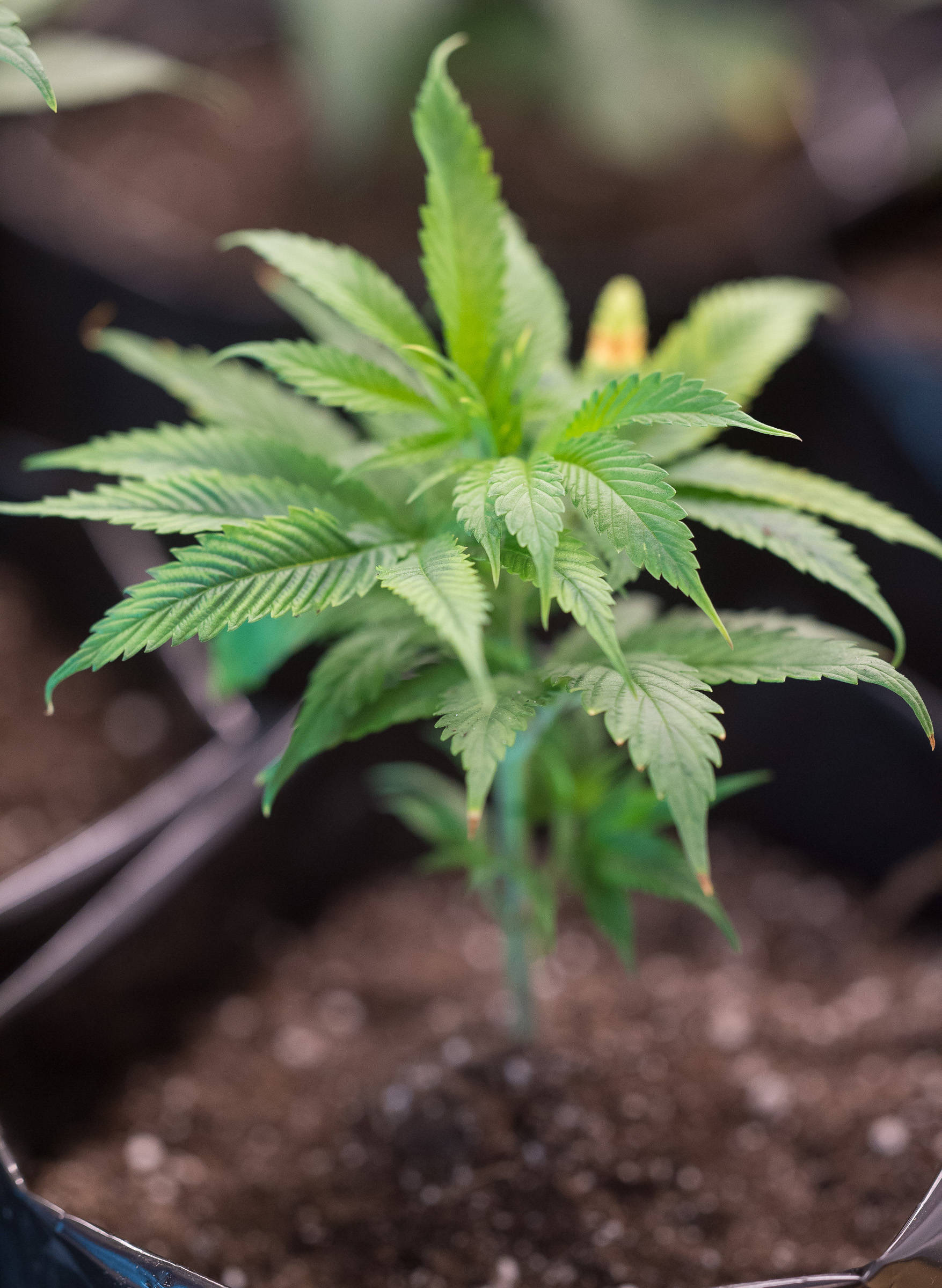Marijuana businesses in Alaska might soon be dealing with less of that other green stuff.
The Secure and Fair Enforcement (SAFE) Banking Act, which passed the U.S. House of Representatives Sept. 25, would create protections for banks and credit unions that work with marijuana-related businesses. If it passes the Senate, the SAFE Banking Act could be the legislation that allows marijuana businesses to move away from dealing almost exclusively with cash.
“If this actually goes through, it will make our lives a lot easier,” said a Juneau marijuana store manager who declined to be identified.
They cited concerns about the status of their personal bank account as the reason for anonymity. The store manager said they keep their marijuana-connected money out of the bank, but were still worried about their name being connected to the industry.
“Previous management had their accounts shut down,” the shop manager said. “I always take this (a store lanyard) off before going into the bank.”
[Onsite consumption gets more consideration in Juneau]
While 33 states allow medicinal marijuana and 11 states and the District of Columbia allow recreational use of marijuana, it is still illegal federally.
Lacy Wilcox, Alaska Marijuana Industry Association President, said marijuana’s federal status as a Schedule 1 drug means banks as institutions and individual bankers would be assuming risks of criminal prosecution or asset forfeiture by working with marijuana-connected money, and most banks aren’t willing to do that.
AMIA Executive Director Cary Carrigan said some banks in the Lower 48 have worked with the marijuana industry but typically charge steep fees. There was a short-lived credit union pilot program for marijuana-related businesses in Alaska, but otherwise, he said the industry is and has been operating on a cash-only basis.
“It creates all sorts of problems,” said a store co-owner who did not wish to be identified citing financial and safety concerns.
Complications include paying employees in cash, traveling with large quantities of paper money to pay state taxes in-person, and traveling to pay producers for the marijuana sold in stores.
The store manager said the money could be mailed, but it’s not ideal to ship thousands of dollars, so in-person payments are the norm.
They said in some areas making in-person payments might be relatively easy, but in Alaska —especially Southeast Alaska — getting to anywhere else to make a payment is a multi-step process with a considerable time commitment.
The store owner said traveling with large quantities of physical money creates an uneasy feeling. While it hasn’t happened in Juneau, the cash-only nature of the business has been a recipe robberies elsewhere, including Washington state and Anchorage.
“You have to be on your toes all the time,” the owner said. “It’s important for me to stay as low key as I can.”
The potential elimination of those extra hassles and risks is why the SAFE Banking Act’s overwhelming, 321-103, passage in the House is being greeted enthusiastically by those in the marijuana industry.
[Auke Bay brewery nears opening]
“The one thing I find extremely reassuring is that there are a number of Republicans who came across (the aisle)” said Carrigan.
The more than 90 Republican representatives who voted for the bill included Alaska Rep. Don Young.
The bill also drew near-universal support from Democratic representatives. While relaxing marijuana regulations has usually been a cause more popular with Democrats than Republicans, Carrigan said the SAFE Banking Act’s ties to industry and states rights have led to bipartisan support.
Carrigan and Wilcox were both in Washington, D.C., during the House vote. They were there with other marijuana industry advocates to meet with senators and Senate offices to explain the importance of the bill.
Both Alaska Senators Lisa Murkowski and Dan Sullivan have previously shown support for SAFE Banking legislation, so Carrigan and Wilcox focused their efforts on other lawmakers.
Wilcox said their meetings were productive and left her feeling more optimistic about the bill’s chances of becoming law, but it’s still far from a certainty.
“I’m not sure when it will come up,” Wilcox said.
The SAFE Banking Act could also become part of an omnibus bill or attached to less-supported legislation, which could tank its chances.
If the bill was approved by two-thirds of the Senate, it would then need to be signed into law by President Donald Trump. The Trump administration has sent mixed messages on where it stands on easing regulations on marijuana.
However, a local store owner is glad to see visible, national progress.
“I’m surprised it’s gotten this far,” they said. “There’s still a stigma out there.”
• Contact reporter Ben Hohenstatt at (907)523-2243 or bhohenstatt@juneauempire.com. Follow him on Twitter at @BenHohenstatt.

